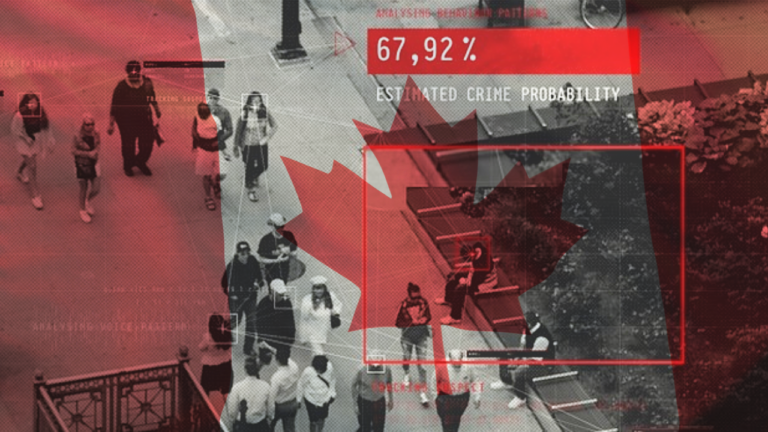House arrest for people deemed likely to commit hate-crimes in Justin Trudeau’s Canada

READ MORE AT FREE SPEECH UNION
Justin Trudeau’s government has proposed a draconian new law that risks weaponising the concept of ‘hate speech’, enabling judges to put those suspected of harbouring hateful thoughts under house arrest, and establishing a free-to-use compensation complaints scheme that will incentivise woke scolds to target for bankruptcy any Canadians who dissent from progressive orthodoxy.
According to the Liberal government, the legislation intends to make the internet safer for children, but Bill C-63 – also known as the Online Harms Bill – goes much further than cracking down on cyberbullying and child exploitation, targeting what it describes as “hate speech”.
As with so many other, similar forms of legislation either already enacted, or under consideration in the English-speaking world, Canada’s proposed new law is underpinned by a remarkably vague, nebulous – and thus easily weaponised – definition of “hatred” as an “emotion that involves detestation or vilification and that is stronger than disdain or dislike”.
According to the Bill, “hatred” of this kind is “fomented” in online settings by “harmful content”, which, in turn, leads people to commit “hate speech”.
On the basis of this behaviourist understanding of social interaction, the legislation goes on to define “harmful content” as content that: “[E]xpresses detestation or vilification of an individual or group of individuals” based on their race, national or ethnic origin, colour, religion, age, sex, sexual orientation, gender identity or expression, marital status, family status, genetic characteristics and disability.
For “greater certainty and for the purposes of defining ‘content that foments hatred’”, the bill adds that: “[C]ontent does not express detestation or vilification solely because it expresses disdain or dislike or it discredits, humiliates, hurts or offends.”
However, the legislation doesn’t explain how words like ‘offend,’ ‘hurt,’ ‘humiliate,’ ‘discredit,’ ‘dislike,’ ‘disdain,’ ‘detest,’ and ‘vilify’ are to be interpreted, or whether they are embedded within some form of hierarchy of seriousness.
It’s in this context that the Bill proposes to amend Canada’s Criminal Code, creating a new stand-alone hate crime offence and granting judges the power to put someone under house arrest if they fear they are likely to engage in “hateful conduct”. In a novel take on the dystopian, science fiction concept of a ‘pre-crime’, if a judge believes there are reasonable grounds to “fear” a future hate crime may be committed, the guilty-until-proved-innocent party would be brought before a provincial court to determine whether they were a probable offender likely, at some unspecified point in the future, to generate “hate propaganda”.
An offending thought criminal would then have to “wear an electronic monitoring device”, “return to and remain at their place of residence at specified times”, and “abstain from the consumption of drugs… of alcohol or of any other intoxicating substance”, presumably just in case such substances loosened their hateful mouths. Failure to comply with these restrictions would result in a prison sentence of up to a year.
Justice Minister Arif Virani, who is also the country’s Attorney-General, described this measure in chilling Orwellian terms as a “peace bond”, and said it could prove “very, very important” to restrain the behaviour of someone with a track record of hateful behaviour.
If “there’s a genuine fear of an escalation, then an individual or group could come forward and seek a peace bond against them and to prevent them from doing certain things”, he said, adding: “What’s really critical is that it gives the judge a wonderful range of sentences.”
In addition to creating this new criminal category of ‘pre-hate crime’, Bill C-63 establishes the offence of communicating hate speech. To achieve this, it amends the Canadian Human Rights Act, making online hate speech a discriminatory practice and establishing a tribunal, to be known as the Canadian Human Rights Tribunal, which will address complaints of online hate speech – as well as hate speech “perpetrated by other means of telecommunication” – between individuals.
This part of the legislation appears to apply retroactively, meaning a person can be brought before the Tribunal for any material posted online, regardless of its publication date. Anonymous accusations and secret testimony are also permitted (at the tribunal’s discretion).
As the National Post points out, this is a process that “financially incentivises complaints at essentially zero cost”.
Complaints are free to file, and if at the conclusion of an inquisition the panel finds against you in relation to a “discriminatory practice”, you can be ordered to pay compensation of up to $20,000 “to any victim identified in the communication that constituted the discriminatory practice, if that person created or developed, in whole or in part, the hate speech to which the complaint relates”.
If the panel considers it appropriate having regard to the nature, circumstances, extent and gravity of the discriminatory practice, the fine can be increased to $50,000.
Because there is no limit to the number of complaints that can be made against you, there is no cap to the compensation a person might be required to pay. For instance, a dozen online posts found by the tribunal to be “hateful” could generate a fine of $600,000.
Small wonder, then, that Canadian psychologist and bestselling author Jordan Peterson, who was recently sanctioned by his professional regulator, the College of Psychologists of Ontario, for what it described as “degrading” online posts about Justin Trudeau, climate change hysteria and trans ideology, says that under Bill C-63, his criminalisation (and, presumably, bankruptcy) would be a certainty.
The Canadian journalist and gender critical feminist Meghan Murphy has also expressed concern at how the new Tribunal system will affect someone like her, whose criticisms of gender identity ideology are already considered transphobic hate speech by the government-funded Canadian Anti-Hate Network.
Last year, for instance, an event she was booked to speak at was cancelled by the venue, citing concerns that “the purpose of this event is to promote, or would have the effect of promoting discrimination or hatred for any group or person on the basis of sex, gender identity, gender expression, sexual orientation, or any other similar factor”. As she says, “There had been no indication or evidence that there would be any discrimination or hatred expressed at the event, entitled, ‘Inclusivity, Gender Identity, and Women’s Rights,’ yet I had essentially been accused of pre-crime.”
Noa Mendelsohn Aviv, executive director and general counsel of the Canadian Civil Liberties Association, is now warning that this hazy, incredibly subjective definition will almost certainly blur the line between “political activism, passionate debate, and offensive speech”.









